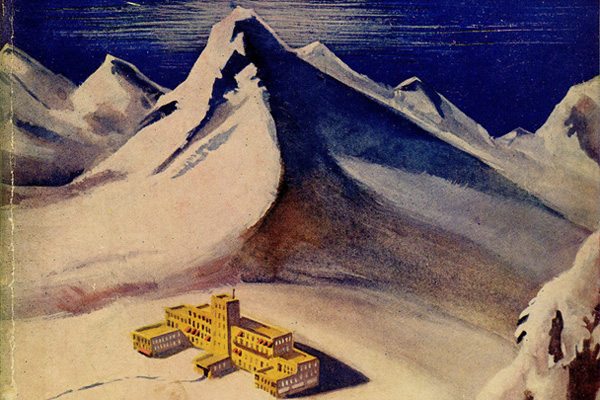The Magic Mountain by Thomas Mann
Those looking for an easy read or a dramatic page-turner should give this book a wide berth. The actual plot is very straightforward and the action mundane. Hans Castorp, a young German of a prosperous merchant family, is about to begin a ship-building career in Hamburg. He goes on a trip to the Swiss alps to visit his cousin, Joachim, who is living in a sanatorium in the mountains to treat his tuberculosis. Hans intends to stay for two weeks, but ends up extending this after falling ill himself, staying there for seven years. He eats lots of meals. He goes skiing. He has a dream. He talks to people. Ultimately, he leaves to fight in the First World War. And that, friends, is basically it.
The strength of the novel lies in its dialogue and ideas, which are primarily developed through a series of discussions and debates involving Hansí fellows at the sanatorium, who form something of a microcosm of the socio-political environment of interwar Europe Ė Freudian impulses, class conflict, the rise of totalitarianism; itís all in there. Alongside these societal allegories runs a more introspective exploration of Hans as an individual, mostly played out through his seemingly futile fascination with, and courtship of, Claudia Chauchat, the closest thing to a love interest in the novel. However, for most of the novel, Hans is as much a spectator as the reader, observing lengthy discussions by stronger characters Ėan Italian and a Jew Ė which make it hard for the reader to feel involved in the action.
Stylistically, Mann manages to maintain a dark, ominous tone throughout the novel, which is the most likely thing to keep a reader engrossed. One interesting motif is medicine, with descriptions of things even as abstract as human emotion often broken down to a scientific level, making the reader feel as if they, too, are in a medical institution.
The Magic Mountain gives up artistic and aesthetic enjoyment to philosophical thought and contemplation. Technically, this is a very, very good book. But I hesitate to recommend it to just anybody. Someone wondering when their knowledge of Greek mythology would be put into practice, or history lovers wanting a first-hand illustration of that ferocious melting pot of ideas bubbling away in a war-ravaged Europe, or even someone in the advanced stages of a personal spiritual crisis, could find great satisfaction in this book. If you are not one of these people, then start with Death in Venice and see whether you or not you and Thomas Mann get along before committing yourself to this mammoth work.







